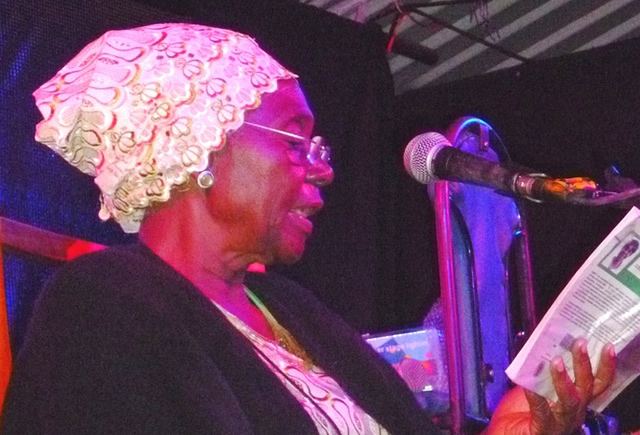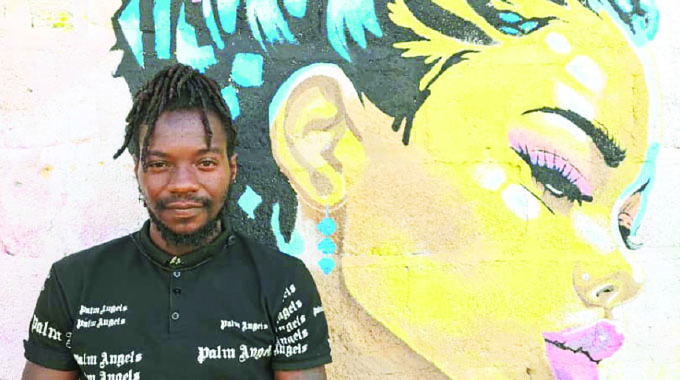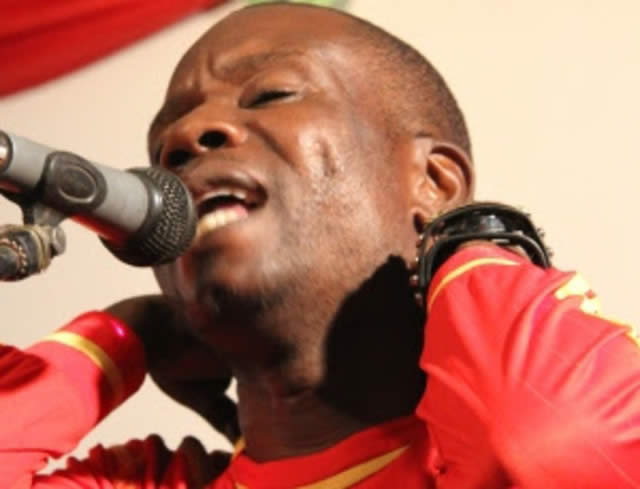Authors’ experiences at International Book Fair


Colette Choto Mutangadura, also known as Mbuya Mutangadura, reads from her book “Kusara Kunze Huona” at ZIBF 2014 Literary Evening
Beaven Tapureta : Bookshelf
Under the chairmanship of veteran writer Musaemura Zimunya, the Zimbabwe International Book Fair executive board in 2013 revived an exciting event called the Book Fair Literary Evening. It is usually held a night before the Saturday writers’ workshop which puts a lid on the six-day long Book Fair. So far, this literary event has done so well in leaving inspirational memories in the minds of writers that people now look forward to it. Local writers have valued this event and once said that in the earlier years of the ZIBF, the literary evenings were held far from the busy city centre, thus according writers a perfect retreat which no doubt purified mind and one’s writerly vision.
Nama award-winning writer Memory Chirere said, “The role of the literary evenings during some book fairs across the world is to offer an artistic side-show in which writers have to interact informally with the reading public, the media and amongst themselves, away from the usual academic papers and the book stands. It is considered as a retreat led by writers, affording them opportunity to exchange notes with the reading public or to market their works directly.”
In those ZIBF’s heydays, the literary evenings would take local writers to out-of-town places like Domboshava together with visiting renowned African writers such as Ngugi wa Thiongo, Somali writer Nuruddin Farrah, South African poet Denis Brutus and others.
This indeed was, and still is, a point to consider because taking the literary evening to a secluded venue outside the hullabaloo of the CBD would capture its own ambience and have an impact on the minds of those who would have attended.
Who, being a writer or poet or avid reader, would not comfortably sacrifice time and money for such an evening retreat to hear varying voices of writers reading their poetry and stories, talking, reflecting on their childhood lives, revealing their writing secrets, laughing freely in arms of a different place!
At the 2014 literary evening, we got to know Ketina Muringaniza, author of “Zviuya Zviri Mberi” which is one of the unforgettable novels which were school set-books many years ago. Had it not been for the literary evening, we would not have known she wrote the novel when she had just married and that the stories she heard from fellow young married women inspired “Zviuya Zviri Mberi”?
As the first half of 2016 draws to an end, no doubt various literary events have taken place so far.
There were new books published and officially launched, the NAMAs, the regular Pamberi Trust poetry slam and film club, and the Harare reading club, and other events across the country but we have had a few literary evenings and writers’ workshops.
This is cause for concern particularly for writers (and readers) who cannot do without the golden moments of meeting and listening to the living legends and contemporaries of Zimbabwean literature and discussing with them issues that directly impact on every writer.
In the absence of literary evenings and writers’ workshops, writers become isolated and sometimes, in the case of budding writers, they feel too blunt to start or resume working on a certain creation.
With six months already gone, writers can only look forward to this year’s Zimbabwe International Book Fair to satisfy their appetites. The 2016 ZIBF is taking place from July 25 to 30 under the theme “Igniting Interest in Reading for Sustainable Development”.
Usually, the ZIBF’s two-day Indaba Conference “trail-blazed” the book festival, and although limiting as it is in terms of attendance because of its prerequisite registration fee, it is a highly formal forum where local and international delegates thoroughly digest the running theme through presentations and question-and-answer sessions. However, the Indaba leaves out a large family of writers.
The book exhibitions, normally running from Thursday to Saturday in the Harare Gardens, play their part in exposing readers to different reading material, organisations and publishers. Parents also have a chance to buy textbooks and other books for their children (and for themselves) directly from a publisher at special prices.
And then the Children’s Reading Tent serves the children right! Here, the kids are entertained by storytellers, poetry, games, competitions and prizes. It’s fun in the tent. Again, with an established and unique breed of storytellers like Ignitius T Mabasa and others, the tent actually propels children to creative levels of the imagination.
There is the Live Literature Centre which caters for theatre, music, poetry. The open space provides entertainment to book fair visitors and once more, the children and adults have their share of cultural merriment here. And new performers take this platform importantly as a springboard to higher platforms of performance.
However, while the Indaba, book exhibitions, children’s reading tent, live literature, etc. organically play a role in making the book fair the right place to be, the writing community gets close to each other for literary warmth and inspiration like chicks at the Book Fair’s literary evenings and the writers’ workshops. These are times to remember for them. These are moments to get close to the older generation of writers and hear how they laugh and ask those silly questions like: Do you still remember the first poem or story you wrote as a budding writer?
There is the ZIBF writers’ workshop on the last day. It comes with its own theme and is not a skills training workshop but a meeting place of creative minds where there is clash and merge of ideas between publishers and writers, between the published and unpublished writers, and the expert advice of those in the clear view of things, and in the end, the resolutions!
The ZIBF Writers workshop of 2015 was quite explosive. Held closely after the deaths of renowned writers/poets Chenjerai Hove and Freedom Nyamubaya, one sensed an underlying emotional streak.
Poet Chirikure Chirikure presented on the challenges and opportunities of taking Shona poetry abroad.
He narrated on how he has travelled around the world on the wings of his poetry in Shona, insisting that, poetry like music, is a universal language. The session was chaired by writer Aaron Chiundura Moyo.
Charles Mungoshi’s son, Farayi presented on “working with and within an artistic family in a challenging economy” in which he highlighted the plight of his father in his current weakness and the running battles they have had with publishers to bring together Mungoshi’s royalty. The house was immediately divided between writers and publishers and there were accusations and counter accusations.
Veteran author TK Tsodzo presented on the challenges and opportunities for the elderly writer in Zimbabwe, singling out the highs and lows in his own career.
Tsodzo has a way with words and his high humour allows one to laugh where one should cry.
Dr Makanda of the Curriculum Development Unit presented on the ongoing national syllabus review and opportunities for our creative writers.
It was a wonderful event and sometimes one felt it was more revealing than the Indaba itself in tackling issues affecting writers themselves.






Comments